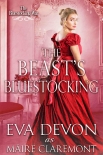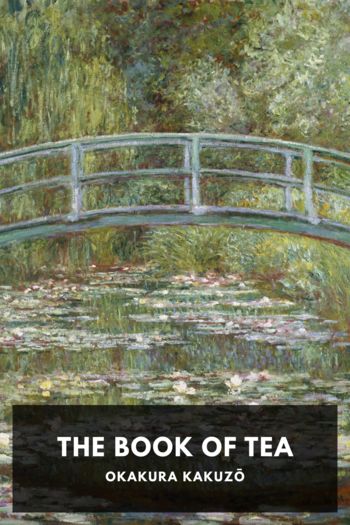Shirley Charlotte Brontë (free ebook reader for pc .txt) 📖

- Author: Charlotte Brontë
Book online «Shirley Charlotte Brontë (free ebook reader for pc .txt) 📖». Author Charlotte Brontë
Commonplace young ladies can be quite as hard as commonplace young gentlemen—quite as worldly and selfish. Those who suffer should always avoid them. Grief and calamity they despise; they seem to regard them as the judgments of God on the lowly. With them, to “love” is merely to contrive a scheme for achieving a good match; to be “disappointed” is to have their scheme seen through and frustrated. They think the feelings and projects of others on the subject of love similar to their own, and judge them accordingly.
All this Caroline knew, partly by instinct, partly by observation. She regulated her conduct by her knowledge, keeping her pale face and wasted figure as much out of sight as she could. Living thus in complete seclusion, she ceased to receive intelligence of the little transactions of the neighbourhood.
One morning her uncle came into the parlour, where she sat endeavouring to find some pleasure in painting a little group of wild flowers, gathered under a hedge at the top of the Hollow fields, and said to her in his abrupt manner, “Come, child, you are always stooping over palette, or book, or sampler; leave that tinting work. By the by, do you put your pencil to your lips when you paint?”
“Sometimes, uncle, when I forget.”
“Then it is that which is poisoning you. The paints are deleterious, child. There is white lead and red lead, and verdigris, and gamboge, and twenty other poisons in those colour cakes. Lock them up! lock them up! Get your bonnet on. I want you to make a call with me.”
“With you, uncle?”
This question was asked in a tone of surprise. She was not accustomed to make calls with her uncle. She never rode or walked out with him on any occasion.
“Quick! quick! I am always busy, you know. I have no time to lose.”
She hurriedly gathered up her materials, asking, meantime, where they were going.
“To Fieldhead.”
“Fieldhead! What! to see old James Booth, the gardener? Is he ill?”
“We are going to see Miss Shirley Keeldar.”
“Miss Keeldar! Is she coming to Yorkshire? Is she at Fieldhead?”
“She is. She has been there a week. I met her at a party last night—that party to which you would not go. I was pleased with her. I choose that you shall make her acquaintance. It will do you good.”
“She is now come of age, I suppose?”
“She is come of age, and will reside for a time on her property. I lectured her on the subject; I showed her her duty. She is not intractable. She is rather a fine girl; she will teach you what it is to have a sprightly spirit. Nothing lackadaisical about her.”
“I don’t think she will want to see me, or to have me introduced to her. What good can I do her? How can I amuse her?”
“Pshaw! Put your bonnet on.”
“Is she proud, uncle?”
“Don’t know. You hardly imagine she would show her pride to me, I suppose? A chit like that would scarcely presume to give herself airs with the rector of her parish, however rich she might be.”
“No. But how did she behave to other people?”
“Didn’t observe. She holds her head high, and probably can be saucy enough where she dare. She wouldn’t be a woman otherwise. There! Away now for your bonnet at once!”
Not naturally very confident, a failure of physical strength and a depression of spirits had not tended to increase Caroline’s presence of mind and ease of manner, or to give her additional courage to face strangers, and she quailed, in spite of self-remonstrance, as she and her uncle walked up the broad, paved approach leading from the gateway of Fieldhead to its porch. She followed Mr. Helstone reluctantly through that porch into the sombre old vestibule beyond.
Very sombre it was—long, vast, and dark; one latticed window lit it but dimly. The wide old chimney contained now no fire, for the present warm weather needed it not; it was filled instead with willow-boughs. The gallery on high, opposite the entrance, was seen but in outline, so shadowy became this hall towards its ceiling. Carved stags’ heads, with real antlers, looked down grotesquely from the walls. This was neither a grand nor a comfortable house; within as without it was antique, rambling, and incommodious. A property of a thousand a year belonged to it, which property had descended, for lack of male heirs, on a female. There were mercantile families in the district boasting twice the income, but the Keeldars, by virtue of their antiquity, and their distinction of lords of the manor, took the precedence of all.
Mr. and Miss Helstone were ushered into a parlour. Of course, as was to be expected in such a Gothic old barrack, this parlour was lined with oak: fine, dark, glossy panels compassed the walls gloomily and grandly. Very handsome, reader, these shining brown panels are, very mellow in colouring and tasteful in effect, but—if you know what a “spring clean” is—very execrable and inhuman. Whoever, having the bowels of humanity, has seen servants scrubbing at these polished wooden walls with beeswaxed cloths on a warm May day must allow that they are “intolerable and not to be endured;” and I cannot but secretly applaud the benevolent barbarian who had painted another and larger apartment of Fieldhead—the drawing-room, to wit, formerly also an oak-room—of a delicate pinky white, thereby earning for himself the character of a Hun, but mightily enhancing the cheerfulness of that portion of his abode, and saving future housemaids a world of toil.
The brown-panelled parlour was furnished all in old style, and with real old furniture. On each side of the high mantelpiece stood two antique chairs





Comments (0)